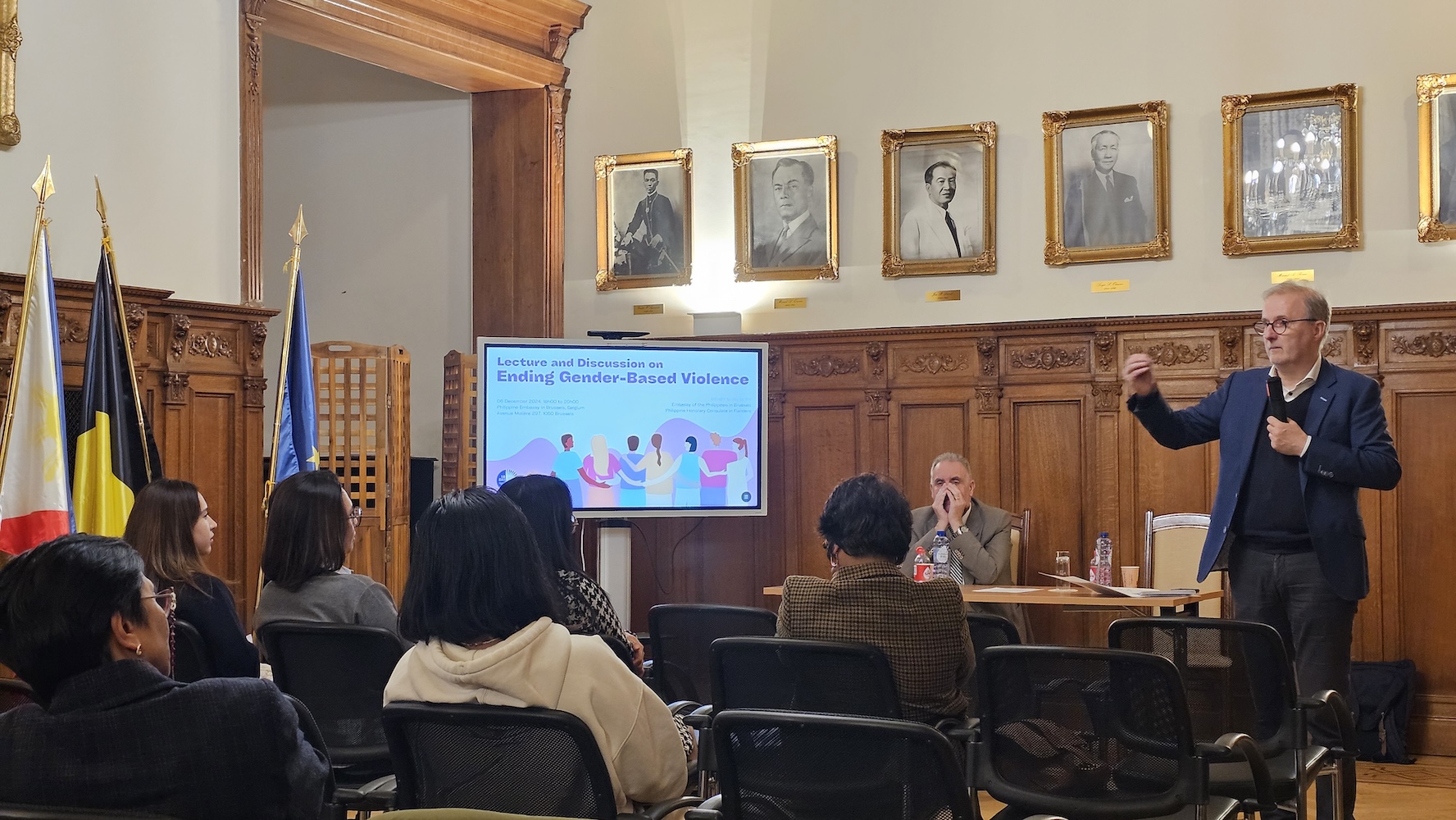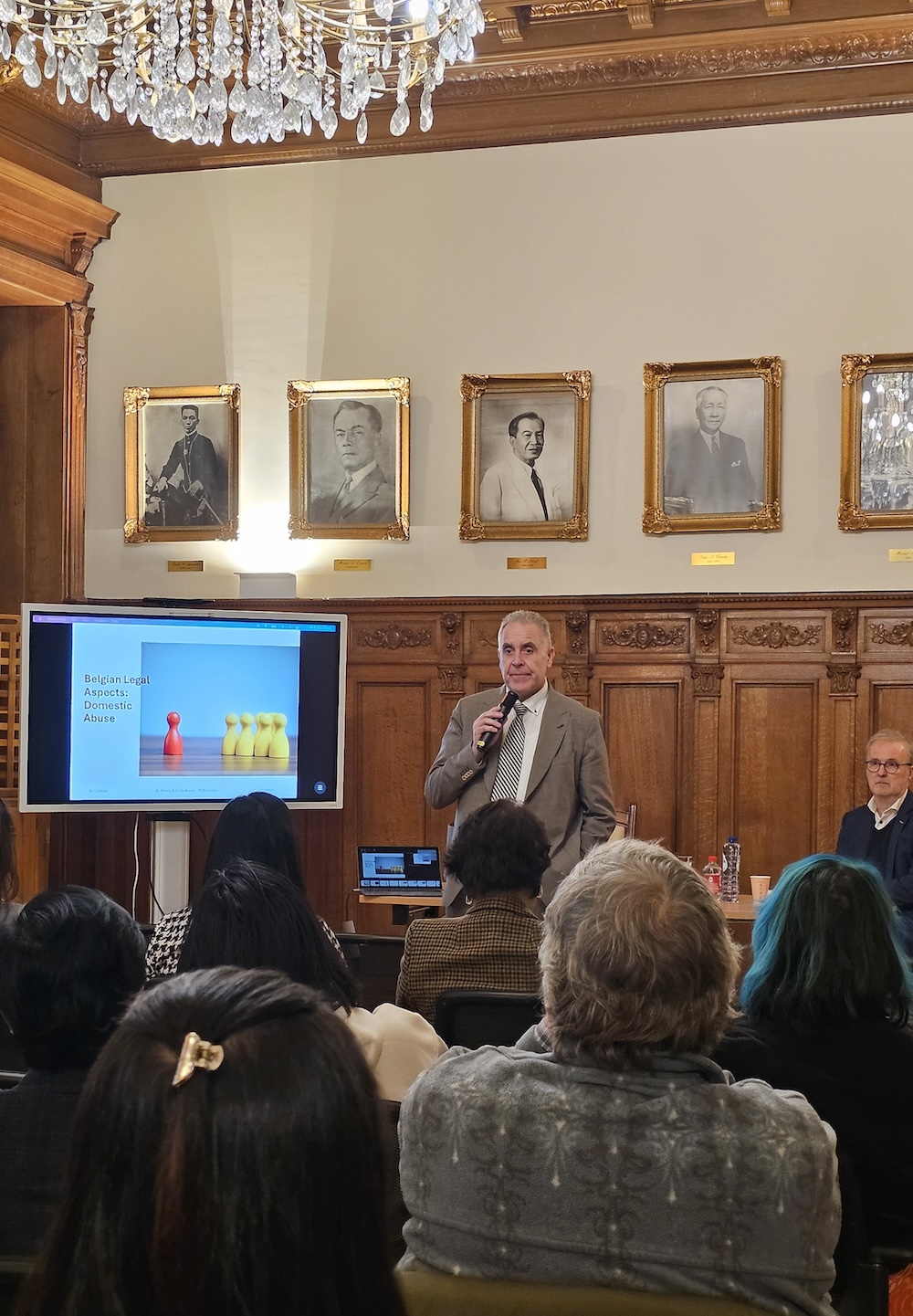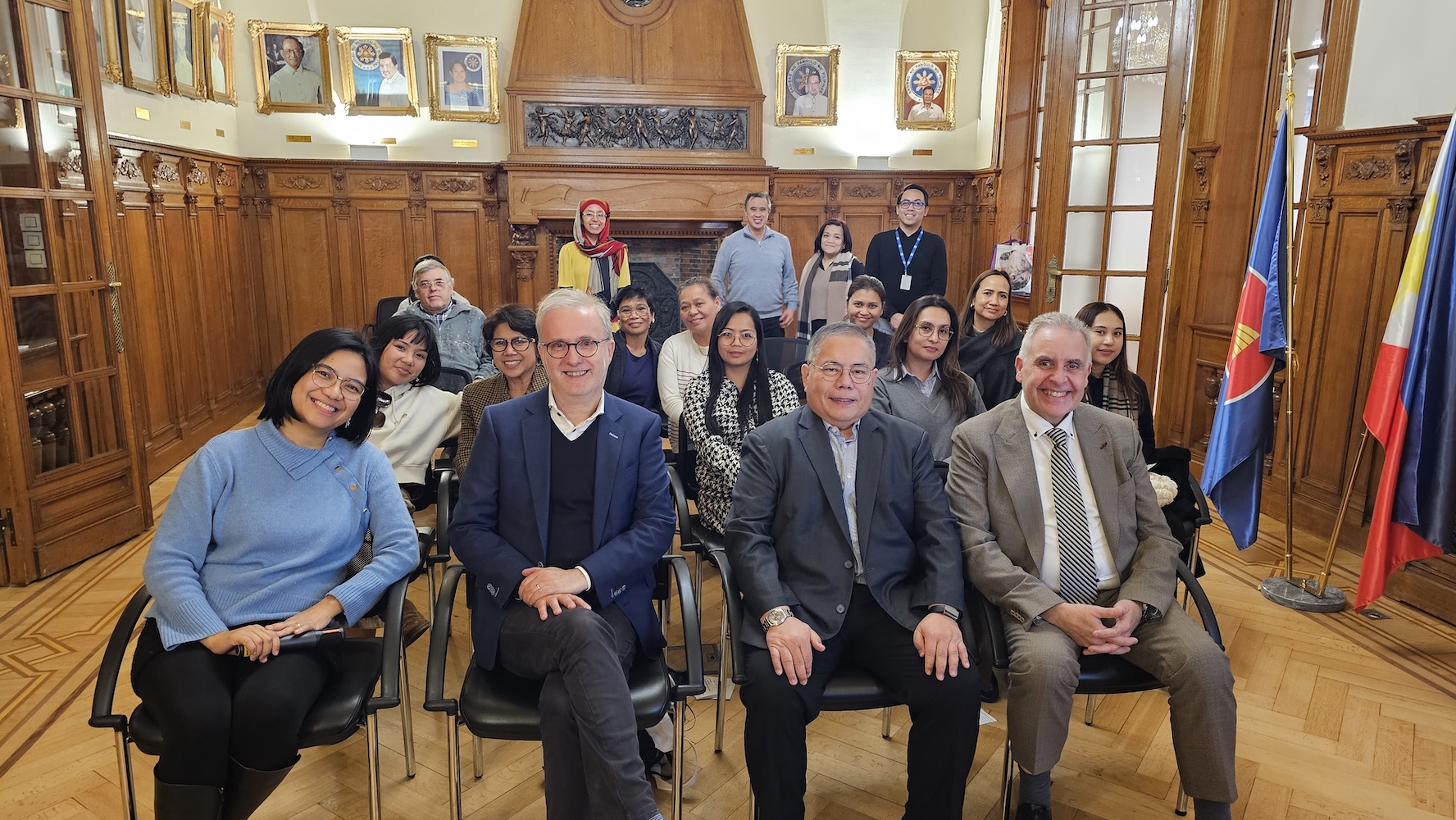 The Embassy of the Philippines in Brussels and the Philippine Honorary Consulate in Flanders organized a lecture and discussion on gender-based violence at the Embassy Chancery on 6 December 2024.
The Embassy of the Philippines in Brussels and the Philippine Honorary Consulate in Flanders organized a lecture and discussion on gender-based violence at the Embassy Chancery on 6 December 2024.
The discussions revolved mostly around the psychology behind abuse by intimate partners, which comprise a great majority of non-labor assistance-to-nationals cases reported to the Embassy.
Honorary Consul General for Flanders Ronny de Blaere gave an overview of the reporting process and legal actions involved in domestic abuse, particularly for those who wish to separate from the husband. He noted that for many victims, leaving an abusive spouse is a huge step, and those who provide help to victims should exercise patience until such time that the victims are able to start managing their lives. He also advised potential caregivers to know their boundaries, to protect themselves from psychological stress, and to seek professional and legal help for the victim if the concern is beyond their capacity.
Clinical Psychologist Mario Dekeyser discussed psychological abuse as a power imbalance that stems from an abuser’s need to control. A victim falls into an abuser’s pattern of coercive control — e.g., isolating the victim from friends and family, controlling aspects of the victims’ health and body, limiting access to money, “gaslighting” or manipulating someone into questioning their perception of reality. The victim will probably feel as though the abuse is their own fault. To get out of this “learned helplessness”, a victim has to consider their self-interest and make a choice to stand on their own feet.
Both speakers emphasized that physical and sexual abuse must immediately be reported. A survivor of psychological abuse will also need a support system that is empathetic to the survivor’s cause — people who will help them realize that they need to get out of an abuser’s coercive control, which might remain with the survivor for years.



